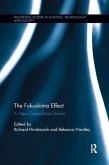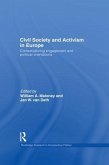Political disillusionment is widespread in contemporary society. In Japan, the search for the 'outside' of a stagnant reality sometimes leads marginalised young people to a disastrous image of social change. The Fukushima nuclear disaster was the realisation of such an image, triggering the largest wave of activism since the 1960s. The disaster revealed the interconnected nature of contemporary society. The protesters regretted that their past indifference to politics prefigured such a catastrophe and became motivated to protest in the streets. They did not share any totalising ideology or predetermined collective identity. Instead, the activism provided a space for each body to encounter others who forced them to feel and think, which also introduced an ethical dimension to their politics. In this book, Azumi Tamura proposes a concept of politics as a series of endless experiments based on creative responses to unexpected forces. Instead of searching for a transcendental reference for politics, she investigates an immanent force within individuals that motivates them to become involved in political action. Referencing Deleuzian philosophy, Tamura provides a different epistemological and ontological approach to the social movement studies. She suggests social movements themselves generate knowledge about how one may live better in a complex society and where our lives are exposed to uncertainty. This knowledge is neither empirical knowledge, nor normative political theory of 'how we should live'. Instead, social movements bring affective knowledge into politics as they offer a space for experimenting with 'how we might live.' The encounter with such knowledge galvanizes our desire for 'how we want to live' and encourages new experiments.
Hinweis: Dieser Artikel kann nur an eine deutsche Lieferadresse ausgeliefert werden.
Hinweis: Dieser Artikel kann nur an eine deutsche Lieferadresse ausgeliefert werden.








